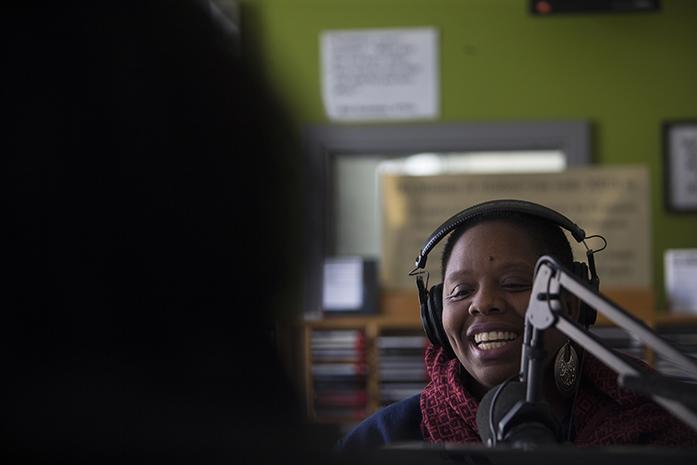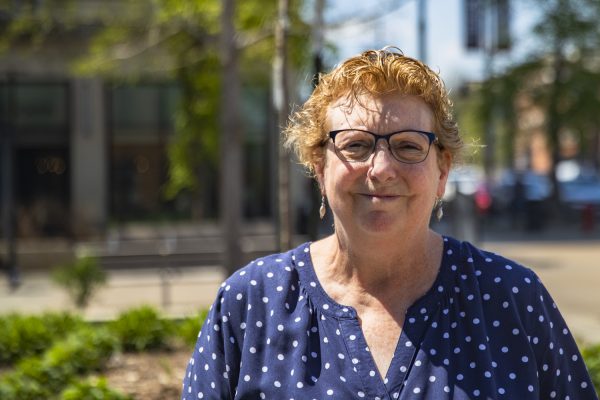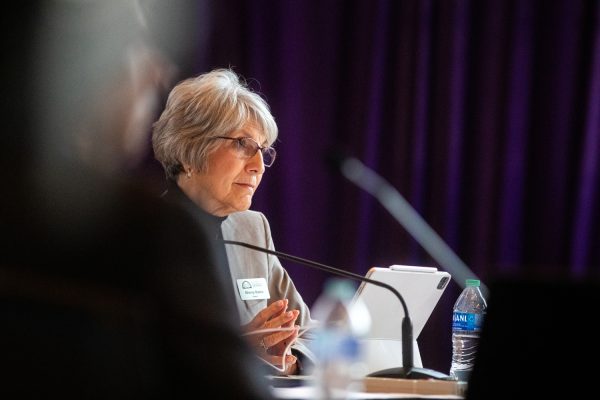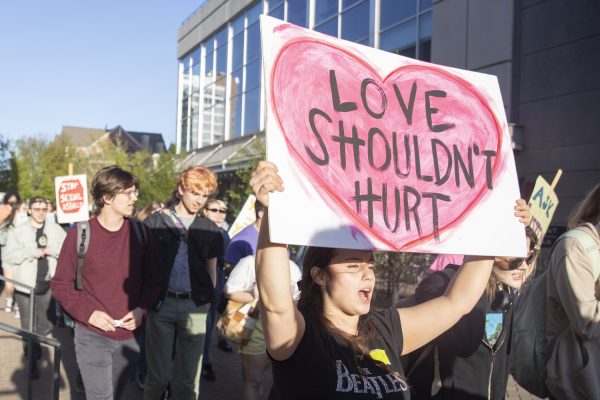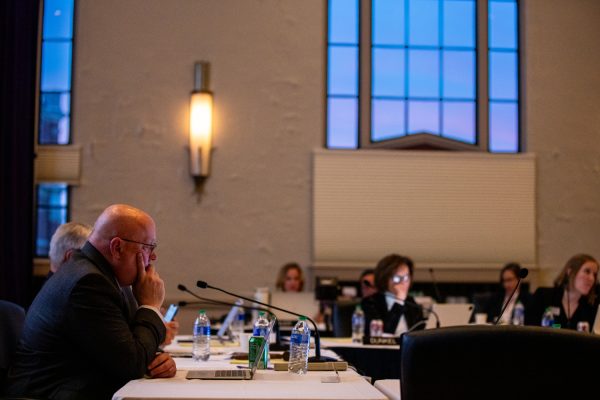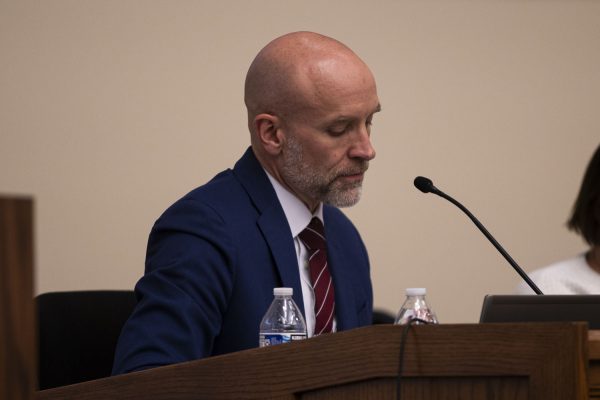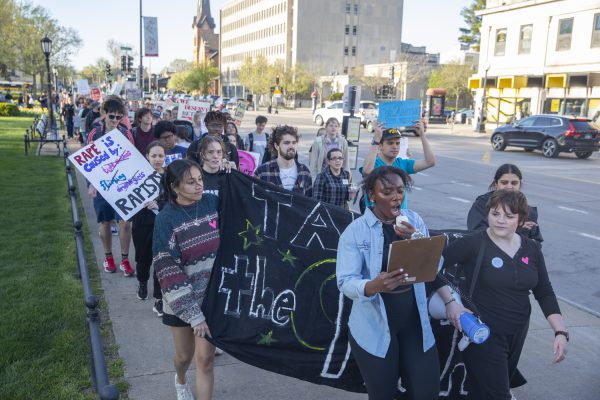Using art for social justice
Patrisse Cullors speaks during an interview on KRUI Iowa City in the Iowa Memorial Union on Monday, Feb. 6, 2017. Cullors is an artist based in Los Angeles and a co-founder of the Black Lives Matter movement. (The Daily Iowan/Joseph Cress)
Patrisse Cullors traveled throughout Iowa City Monday with a simple message: Black lives matter.
By Charles Peckman
Patrisse Cullors had a busy Monday in Iowa City — she spoke on the air at KRUI and then in the Old Capitol Senate Chamber, and topped it off with a lecture at Englert Theater in the evening.
In the wake of George Zimmerman’s acquittal for the slaying of Trayvon Martin, Cullors, along with Alicia Garza and Opal Tometi, started the #BlackLivesMatter Movement on social media in 2013.
Although the movement she cofounded has gained worldwide momentum since that fateful winter day, Cullors has been active in the social-justice world for quite some time.
“I grew up in a small suburb,” she said. “I witnessed a significant amount of policing, and many of my family members were incarcerated.”
Cullors’ website says she calls herself the “self-described wife of Harriet Tubman.” She said that as she read about her ancestors and the history of African Americans in general, she became particularly fascinated with the role Tubman played in the Underground Railroad.
“Her story is something that resonated with me,” she said.
After attending UCLA, she used her education and passion for social justice to raise awareness for issues in her unique way — through art.
“I usually use art to amplify topics I feel passionate about,” she said.
In 2012, Cullors created a performance-art piece called STAINED: An Intimate Portrayal of State Violence.
Although STAINED and the Black Lives Matter Movement are not directly related, Cullors said all of her projects have distinct underlying themes.
“It’s a call to action, it’s a response, it’s a vision, and it’s a movement to challenge anti-black racism,” she said.
Cullors said the reach of the Black Lives Matter Movement is not just national, it is worldwide.
“Wherever black people exist, there is a struggle for freedom,” she said.
The Black Lives Matter Movement does have its beginnings as a call to action against police brutality, and the reason behind this is simple to Cullors.
“As long as police have existed, there has been the killing of black people,” she said.
A distinction Cullors wanted to make, however, is that the Black Lives Matter movement is not limited to police brutality.
Cullors urges people of all colors to organize in their communities — to African Americans, she hopes there is a unified front in terms of support for the Black Lives Matter Movement. For white people, she urges racism and the targeting of African Americans to cease on every level.
No movement is complete without pushback, and Cullors said she has encountered plenty. To her, this is a mystery.
“We have always called for peace,” she said.
At the Englert on Monday evening, Cullors gave a lecture about Black Lives Matter and her career in social justice.
Brandon Ross, an Iowa City resident who attended Cullors’ evening lecture, said he was there because “we all have to be unified against the system of greed and tyranny we have become accustomed to.”
Ross noted that “black lives do matter, and black lives are the steppingstone of society in this country.”
“African Americans are the first group to be taken advantage of, and that needs to stop,” he said.
UI student Jameisha Morgan, who also attended the event, said, “I heard about this event in class, and I am very interested in anything related to social justice.”
Cullors’ lecture was presented by the University Lecture Committee, the Theme Semester, and the Vice President for Student Life Office.



